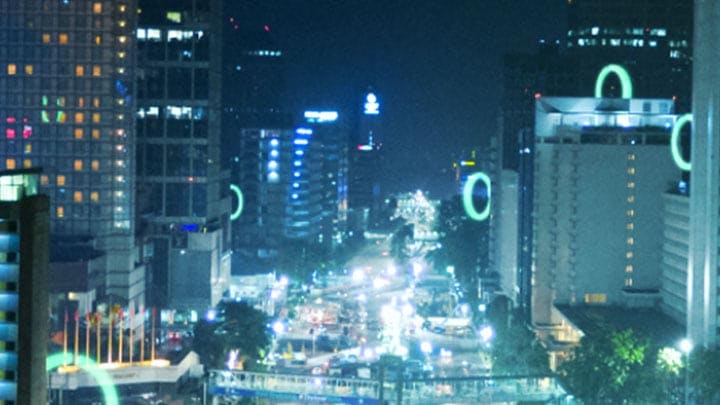May 22, 2020
Signify’s Harry Verhaar urges European policy makers and business leaders to back a green economic recovery that puts Europe on the path towards climate neutrality
A version of this article first appeared on the website of the Corporate Leaders Groups.
This year was set to be the litmus test of the Paris Agreement with the approaching deadline for countries to resubmit pledges to cut emissions. With current commitments nowhere near adequate for a safe world, the planet sits on a knife edge.
And then this game changer year offers up the challenge of coronavirus, a pandemic that is putting lives, jobs and economies at risk. Much like climate change, it’s a threat that’s universal: it doesn’t discriminate based on geography, wealth, or social standing (though certainly the impact is not equally felt).
We know that nothing will ever be the same, and with this understanding has come an outpouring of truth and openness about the darkness and difficulties we face, both individually and as a society. This honesty feels like hope.
Hope in the fact we will be able to use this moment to harness a spirit of collaboration across boundaries, hope that we are looking around us and seeing what is possible – and that it is more than we thought.
When I became Chair of the European Corporate Leaders Group (CLG Europe) early this year, I anticipated the need for a unified voice from the business community to our political leaders. What I hadn't anticipated was that such a spirit of unity would be tested so soon.
As I begin my tenure, I’m conscious of a deep sense of responsibility. It’s vital now that our current circumstances must not detract from our long-term goals, but act as an imperative to action. We understand – all of us – the need to put aside our individual interests as we unite in a common course of action for the benefit of all.
Everywhere I look, I see examples of creativity, of collaboration, of communities and businesses taking action to provide relief – Unilever committing to provide free soap, sanitizer, bleach and food to the value of €100 million, Heathrow scaling up its cargo operations to get supplies to frontline teams, Enel's globally-applicable insurance policy to protect employees hospitalized by the virus, or The Coca-Cola Foundation's $120 million global relief fund to help the communities most affected by the virus. While at Signify we have has ramped up production of UV-C lamps used for sterilizing and disinfection for donation to hospitals from Wuhan to Bergamo. And there are many, many more examples.

Perhaps we are all beginning to understand that today's reality is a cautionary window into the worst version of our future, where this great pandemic is only a dress rehearsal. As the planet warms, mosquitoes range ever further north, carrying diseases previously known only to the tropics. And in the Arctic, diseases that have lain trapped in the permafrost threaten to emerge as the ice melts. We should have acted yesterday, but the second-best time to act is now.
And we already know what to do. At the end of 2019, the European Commission announced the European Green Deal, a blueprint to make this continent climate neutral by 2050. This marks a shift in the way environmental and sustainability regulation is developed. And crucially for our times, it’s a growth strategy, proving that economic development and mitigating a climate crisis need not be at odds.
CLG Europe is calling on governments to commit to clear and common interim goals for 2030 that will put us on the right trajectory to carbon neutrality by 2050. It is our intent that by coming together to urge the right course of action, we can stave off the worst effects of climate change, paving the way for a brighter, more prosperous, and better future for our planet.
As governments hastily assemble stimulus packages aimed principally at protecting economies from the worst effects of the pandemic, we must continue to hold our political leaders and ourselves accountable to ensure that we keep the most important considerations top of mind. It is counter-productive to shore up economies based on the old way of doing things, only to kick the can down the road and create further, and worse, situations for our children.
Economic recovery must come at a price humanity can afford to pay. Stimulus packages have the power to jumpstart sustainable initiatives. A great place to start is building renovation. Buildings are responsible for 39% of global carbon emissions, and 50% of global material use. Through initiatives like the World Green Building Council’s Advancing Net Zero project, we can eliminate global building and construction sector emissions through an economy-wide renovation wave, reaching the net-zero goal latest by 2050.
Focusing stimulus on these initiatives multiplies the benefit. It can put people back in meaningful work, contribute to economic recovery, and help us build resilience to the climate crisis through energy-efficient infrastructure. Such aspirations must not be forgotten.
Let’s not lose the energy of this moment. Let’s jointly build the “new normal” of a carbon neutral Europe that looks back in 2050 to how an unprecedented crisis in 2020 helped us see clearly enough to change the course of the future.
Signify (Euronext: LIGHT) is the world leader in lighting for professionals, consumers and the Internet of Things. Our Philips products, Interact systems and data-enabled services, deliver business value and transform life in homes, buildings and public spaces. In 2023, we had sales of EUR 6.7 billion, approximately 32,000 employees and a presence in over 70 countries. We unlock the extraordinary potential of light for brighter lives and a better world. We have been in the Dow Jones Sustainability World Index since our IPO for seven consecutive years and have achieved the EcoVadis Platinum rating for four consecutive years, placing Signify in the top one percent of companies assessed. News from Signify can be found in the Newsroom, on X, LinkedIn and Instagram. Information for investors is located on the Investor Relations page.
